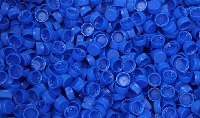Petrochemicals Enzymes Additive Biobased 27-06-2020 - Arhive
Petrochemicals Enzymes Additive Biobased
-Novozymes acquires PrecisionBiotics
Danish-headquartered Novozymes has acquired PrecisionBiotics Group Limited for €80m ($m89.7).
Based in Cork, Ireland, PrecisionBiotics Group holds a leading position within probiotics for human gut health and Novozymes said it is well positioned with several clinically backed products already in the market.
“This acquisition fits well with our strategy, Better business with biology, where we have focus on human health as one of our opportunities for growth. With this investment, we take another important step in implementing the strategy and setting a foundation of growth for our business,” said Ester Baiget, president and CEO of Novozymes.
PrecisionBiotics Group has expertise within clinical development, upscaling and commercialization and is situated in Cork, Ireland, which is home to an academic society within human gut health.
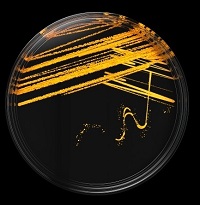
-Texas oil industry faces prospect of collapse amid Covid-19 losses
Oil and gas producers are trying to reopen after a ‘devastating’ halt, but pessimism about an economic recovery is widespread
Jeffrey Lattea finally got his first unemployment check this week, a whole month after he was laid off again. The 34-year-old resorted to government assistance to cover his bills after losing his second job in the Texas oil and gas industry just six weeks into it.
Global stock market rally is a gamble, IMF warns investors
“My first company laid us off to stabilize their balance sheet,” the oil worker said, matter-of-factly. “I was able to secure a temporary position with another inspection company in Pasadena with a turnaround. They started doing layoffs after the first week, so I knew it was coming – but not that fast.” Petrochemicals Enzymes Additive Biobased
Lattea is among tens of thousands of workers across Texas – America’s largest oil-producing state – who have lost their jobs since coronavirus shutdowns dried up demand.
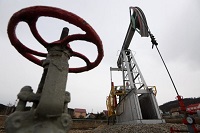
For more than a week now, oil prices have consolidated around the psychologically important $40/barrel level as the worst of the recent oil price crash appears to be in the rearview mirror. So far, OPEC+ production cuts appear to be going well with recalcitrant producers such as Iraq, Kazakhstan, Azerbaijan, Nigeria, and Angola toeing the line and raising hopes that the markets have been effectively rebalanced. Still, some oil punters believe that this is just the beginning and that oil prices are set to soar into rarefied territory. Petrochemicals Enzymes Additive Biobased
Specifically, JPMorgan has doubled-down on an earlier prediction of a “bullish supercycle” that could take oil prices well past $100/barrel due to a dramatic supply deficit.
Christyan Malek, JPMorgan’s head of Europe, Middle East and Africa oil and gas research, has reiterated an earlier bullish note where he had predicted that oil prices could soar to $190/barrel due to dramatic capex cuts by producers, among other factors.

-Virgin resin price vs. Recycled resin price
Plunging price of oil and the demand for recycled plastic
The impact of the COVID19 pandemic has had enormous repercussions on the oil industry. The unprecedented fall in demand sent prices plummeting, causing shockwaves to ripple through the plastic recycling industry and circular economy.
The price of virgin material is linked to the price of oil and, naturally, as oil prices fell virgin plastic became much cheaper, meaning manufacturers have started to choose to revert back to virgin plastics to save money over the more expensive recycled polymers.
What influences the price of recycled resin?
The elements that influence the pricing of recycled material are completely different to virgin plastics. Petrochemicals Enzymes Additive Biobased
The collection, sorting and cleaning of material sent for recycling, as well as the cost of energy and equipment required is unconnected to the cost of virgin plastic, but contributes to the discrepancy in pricing between virgin and recycled plastic.
-Signs of recovery for Europe chemicals industry on the horizon but near-term conditions remain weak
Any recovery for the European chemicals sector is likely to be delayed until September, according to analysts from Baader Bank on Friday.
Business sentiment has picked up, and the prospect of a recovery could come to fruition in 2020-2021, but near-term circumstances remain bleak for the sector.
As buyers sit on full inventories, there is no need to restock material, which means markets could be quiet over the coming weeks. Petrochemicals Enzymes Additive Biobased
The pandemic has capped the feasibility of longer-reaching forecasts, with many companies uncertain of how economic conditions will unfold beyond July.
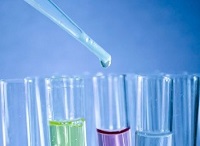
-Economic effects of COVID-19 on Japan: World’s 3rd largest
he data from Japan’s ministry of finance shows that Japan’s exports fell by 11.70 per cent in the current year till March compared with a 10.10 per cent decrease expected by economists in a Reuters poll. According to Takeshi Minami, chief economist at Norinchukin Research Institute, the impact of COVID-19 is going to continue through this year which would hinder the economic activity from normalising. Japan’s exports to China, its largest trading partner, have declined by 8.70 per cent in the year till March, reflecting a slump in items including textiles and apparels.
Japanese shipments to Asia, contributing to more than half of Japanese exports, declined by 9.40 per cent, and exports to the EU fell by 11.10 per cent due to the global spread of COVID-19. Imports fell 5 per cent in March, versus the median estimate for a 9.80 per cent decline. Petrochemicals Enzymes Additive Biobased

-The Future of Single-Use Packaging in a Post-Pandemic World
Back in the summer of 2019, plastic packaging—particularly single use—was taking a beating and it looked like the future was bleak. Social media and viral videos made plastics the villain, singularly responsible for polluting the planet. Some plastics professionals were even pondering if they should jump to a different career path before it all came crashing down. Petrochemicals Enzymes Additive Biobased
In a way, it was reminiscent of the era leading up to the Tylenol tampering in 1982, where the consumer battle cry of the time was “over packaging.” For those of us who were around at the time, we know that a few months later, tamper-evident devices were mandated for over-the-counter pharmaceuticals. Many consumers did an about face and started complaining “why weren’t these devices on the packages to begin with?”
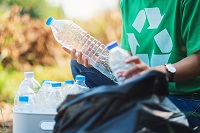
-Eni and NextChem strengthen their partnership to develop circular economy technologies
Eni and NextChem, the Maire Tecnimont Group’s subsidiary for green chemistry, strengthen their partnership 1 year after their first agreement. This partnership will conduct research for a new project to be developed in Taranto, in addition to ongoing engineering studies for a waste-to-hydrogen production plant at the Eni bio refinery in Venice, Porto Marghera, and for a waste-to-methanol production plant at the Eni refinery in Livorno. Petrochemicals Enzymes Additive Biobased
This phase is aimed at assessing the feasibility of a plant within the Taranto refinery for the production of new synthesis gas from plasmix and dry waste through a chemical recycling process. The gas produced will be then refined and produced through two separate channels: hydrogen, which can be used by the Eni refinery to assist the fuel hydrodesulphurisation process; gas with a high carbon monoxide content which can be used by the steel mill both in blast furnace processes and the new Direct Reduced Iron technologies. These studies could make a significant contribution in terms of decarbonisation or the steel industry.
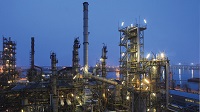
-PET Resin Demand Slackens Because of COVID-19
The consumption of bottled water, soft drinks, and on-the-go food products, all of which use PET-based packaging, typically rises as warmer weather envelops Europe and people go on vacation. This year will be different.
Polyethylene terephthalate (PET) is the most commonly used plastic to package bottled water, soft drinks, and on-the-go food products, and demand for those products tends to follow a cyclical, fairly predictable pattern. For example, as temperatures begin to rise and the European summer holiday season begins, the demand for PET resin increases, writes Susan Mair, Petrochemical Analyst at Independent Commodity Intelligence Services (ICIS), in a recent article. Bottled water and soft drink sales rise as warmer weather moves across the continent, she notes, and travelers typically eschew tap water when they are abroad, causing sales of bottled water to soar in holiday destinations. Petrochemicals Enzymes Additive Biobased
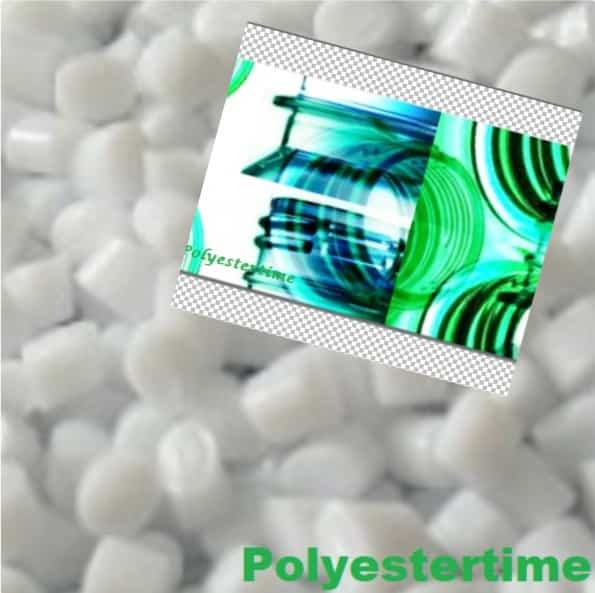
-Start-up set to replace plastics with air
A UK start-up company has raised £6 million ($7.3m) in funding to help take to market a nano-scale technology that it claims will replace plastics with air. Void Technologies secured funding from two investors – SABIC Ventures (a subsidiary of SABIC) and the Capricorn Sustainable Chemistry Fund (managed by Belgium-based asset management firm Capricorn Partners) – for what it calls a “revolutionary technology” called VO+. The technology involves the engineering of a nano-scale cavitated structure into commodity and biobased plastics, which the company says has big implications for the reduction of plastics consumption. Petrochemicals Enzymes Additive Biobased
Void claims that it makes existing plastics work harder and perform better by offering the ability to significantly reduce the quantity of plastics used in applications such as packaging by up to 50 per cent, while remaining fully recyclable. These new plastics products made with VO+ are lighter, stronger, and more sustainable, claims Void. The technology is expected to make a significant contribution in enabling manufacturers, brand owners and retailers to reduce plastics consump
tion in order to achieve their sustainability targets. “We are delighted to have secured investment from two highly regarded investors during what is a very difficult time to raise finance owing to Covid-19,” said James Gibson, founding chief executive of Void. “The funds will enable us to expand our laboratory and technology development capabilities and establish manufacturing in both the US and Europe.” Aruna Subramanian, global head of SABIC Ventures, added: “Sustainability is embedded in the way SABIC does business. Our sustainability programme guides our ambition to be the world’s preferred supplier of chemicals. To this end
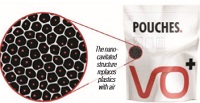
Petrochemicals Enzymes Additive Biobased

